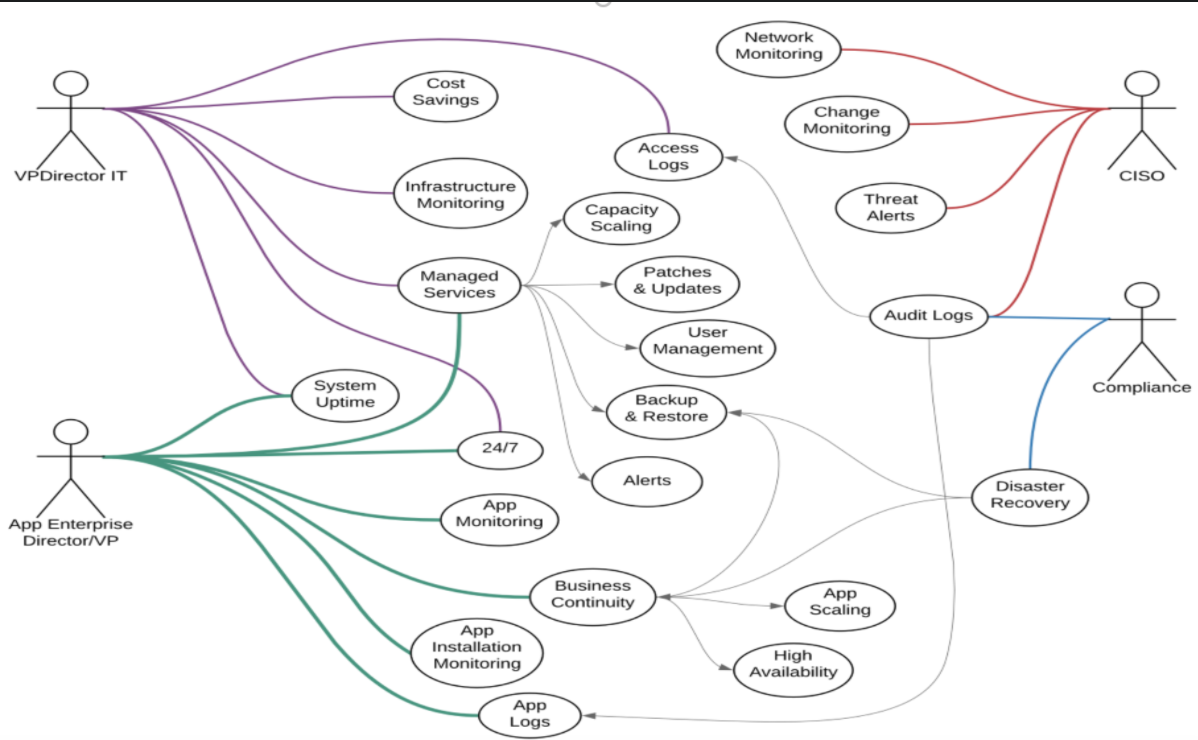There are different types of Managed Services in the market. Depending on the scope of the business’ IT needs, the company may outsource a single service to an MSP or decide to contract a more comprehensive multi-service package.
Here are the different types of Managed Services:
- Managed networks or infrastructure. These services eliminate the cost of owning and running a data center. They focus mainly on network technologies and appliances. Management of VPNs, subnetting, load balancers, Internet, firewalls, and NAT devices among other appliances, are provided for the network. Application hosting, servers, and storage are part of this category. One important benefit is that the MSP will help the organization reduce the total cost of ownership of the IT infrastructure and operations.
- Managed application services. Like networks and infrastructure, the focus of these services is to provide a cost-effective management solution on software and applications. Many applications need to guarantee a constant SLA in performance metrics for customer experience purposes, and these apps need to scale in and out, fail over, and fix any outage or delay in responses.
- Managed Cloud platforms. The MSP personnel manage the client’s computing, storage, networks, servers, and operating systems. It also may include managing the tools and application stacks like web server, package software, databases and DevOps tools that run on top of that infrastructure. Clients with multiple Cloud solutions and platforms can delegate the management of all these areas to one MSP.
- Managed support services. The MSP handles traditional help desk responsibilities, including trouble ticketing for IT problems among employees and resolution mechanisms.
- Managed security services. This type of Managed Service provides a broad range of solutions like patch and updates installations, malware prevention, email and spam filtering, incident management and remediation.


